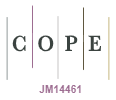Research and research in education: movements created by aesthetics and sensitivities
DOI:
https://doi.org/10.5585/eccos.n53.16664Keywords:
Education, Aesthetic experience, Search, Sensitivities.Abstract
The article aims to problematize the research movements experienced by the researcher in the investigative process and their effects created in / by aesthetics and sensitivities. Our reflection is based on: how can aesthetic experience and sensitivities affect research in investigative movements and its consequences in education? About this question, we spoke with some authors: Deleuze (2006, 1988 and 1974) Deleuze and Guatarri (1995 and 1992), bringing the concept of cartography, enabling us to create other ways of research; Schiller (2017), with the concept of impulses - sensitive and formal, provoking the need for articulation between both, and the ambiguous nature of rationality and subjectivity. Morin (2003 and 1999), addressing complex thinking in education, able to unite and contextualize, without losing sight of the singularity; Meira and Pillotto (2010), when mentioning the aesthetic experience to think about educational processes, as a food that mobilizes and expands the subject's relationships at the threshold of the rational and the sensitive; Maffesoli (2010, 2004 and 1998), who defends sensitive reason as a methodological lever for the exercise of thought. In addition to these authors, others subsidized us to understand sensibilities as vital forces and creative power that drive human existence and research. This article, therefore, constituted a dialogue with the experiences in a Research Center for Art in Education, in which research and research (between) are linked with aesthetics and sensitivities. In other words, maps are being formed, ending and unfolding in the educational processes.
Downloads
References
DELEUZE, Gilles. El Leibniz de Deleuze: exasperación de la filosofia – 1ª ed. – Buenos Aires: Cactus, 2006.
DELEUZE, Gilles. Lógica do sentido. Tradução de Luiz Roberto Salinas Fortes. São Paulo: Perspectiva, Editora da Universidade de São Paulo, 1974. (Estudos 35)
DELEUZE, Gilles. Diferença e Repetição. Tradução: Luis Orlandi, Roberto Machado. Rio de Janeiro: Graal, 1988.
DELEUZE, Gilles.; GUATTARI, Felix. O que é a Filosofia? Trad. Bento Prado Jr. e Alberto Alonso Muñoz. São Paulo: Editora 34, 1992.
DELEUZE, Gilles.; GUATTARI, Felix. Mil Platôs: capitalismo e esquizofrenia. Vol. I. São Paulo: Ed.34, 1995.
DELIGNY, Fernand. Os vagabundos eficazes, operários, artistas, revolucionários: educadores. Tradução e notas: Marlon Miguel. São Paulo. N- Edições, 2018.
MAFFESOLI, Michel. Saturação. Tradução: Ana Goldberger. São Paulo. Iluminuras: Itaú Cultural, 2010.
MAFFESOLI, Michel. Elogio da razão sensível. Tradução: Albert Christophe Migueis Stuckembruck. Petrópolis, RJ: Vozes, 1998.
MAFFESOLI, Michel. A Parte do Diabo. Rio de Janeiro: Record, 2004.
MALDONATO, Mauro. Passagens do tempo. São Paulo: Edições SESC São Paulo, 2012.
MEIRA, Marly. O sentido de aprender pelos sentidos. In: PILLOTTO, Silvia S. D; BOHN, Letícia R D. Arte/Educação: ensinar e aprender no ensino básico. Joinville, SC: Editora: UNIVILLE, 2014.
MORIN, Edgar. Complexidade e transdisciplinaridade: a reforma da universidade e do Ensino Fundamental. Natal: Editora da UFRN, 1999.
MORIN, Edgar. Educar na era planetária: o pensamento complexo como método de aprendizagem pelo erro e incerteza humana. São Paulo: Cortez; Brasília, DF: UNESCO, 2003
PASSOS, Eduardo; KASTRUP, Virgínia; ESCÓSSIA, Liliana da (Orgs.). Pistas do método da cartografia: pesquisa-intervenção e produção de subjetividade. Porto Alegre: Sulina, 2014.
ROLNIK, S. Cartografia sentimental: transformações contemporâneas do desejo. Porto Alegre: Editora da Universidade Federal do Rio Grande do Sul, 2006.
SCHILLER, Friedrith. A educação estética do homem. Trad. Roberto Schwarz e Marcio Suzuki. São Paulo. Iluminuras, 1989. (reimpressão 2017)
AUTORES X, 2010.
AUTORES Y, 2017.
Downloads
Published
How to Cite
Issue
Section
License
Copyright (c) 2020 EccoS – Revista Científica

This work is licensed under a Creative Commons Attribution-NonCommercial-ShareAlike 4.0 International License.
- Abstract 518
- PDF (Português (Brasil)) 504







